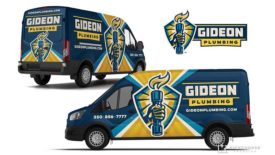Columns
Nicole Krawcke: Plumbers can do their part to protect water for future generations
As much of the U.S. faces historic drought conditions, water conservation efforts kick into high gear.
January 13, 2023
Anthony Cafagna: How to attract Gen Z to jobs in the plumbing industry
Employ these strategies to help attract the next generation of plumbers and pipefitters to the trades.
January 12, 2023
Marketing Magic: The secret to success may be a tool you're not using
Disrupt the status quo with a powerful brand.
January 11, 2023
Codes Corner: Fixture and fixture fittings in the Uniform Plumbing Code refrigerants
The plumbing code is important to ensure the health and safety of the public are protected during fixture and fitting installation.
January 10, 2023
Matt Michel: 5 traits of winning plumbers
Position yourself for success by adopting these qualities.
January 9, 2023
Dave Yates: Air-to-water heat pump efficiencies
Ensure you’re designing heating systems to utilize the lowest possible water temperature on design day.
January 6, 2023
Kenny Chapman: How to structure roles for a successful team
Create a clear vision and set out clear roles and responsibilities for your team members.
January 5, 2023
Dan Holohan: That seventies show
Learn from the mistakes of the past or we’ll be doomed to repeat them.
January 4, 2023
John Siegenthaler: Well-planned hydronic systems last far longer than modern appliances
Lasting value
January 3, 2023
Keep your content unclogged with our newsletters!
Stay in the know on the latest plumbing & piping industry trends.
JOIN TODAY!Copyright ©2024. All Rights Reserved BNP Media.
Design, CMS, Hosting & Web Development :: ePublishing
















